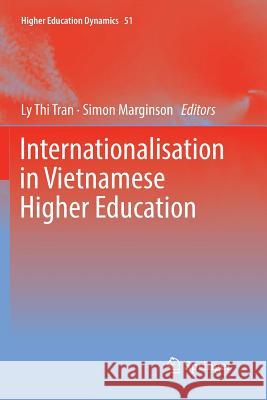Internationalisation in Vietnamese Higher Education » książka
topmenu
Internationalisation in Vietnamese Higher Education
ISBN-13: 9783030087128 / Angielski / Miękka / 2018 / 261 str.
Kategorie:
Kategorie BISAC:
Wydawca:
Springer
Seria wydawnicza:
Język:
Angielski
ISBN-13:
9783030087128
Rok wydania:
2018
Wydanie:
Softcover Repri
Numer serii:
000260384
Ilość stron:
261
Waga:
0.39 kg
Wymiary:
23.39 x 15.6 x 1.47
Oprawa:
Miękka
Wolumenów:
01
Dodatkowe informacje:
Wydanie ilustrowane











